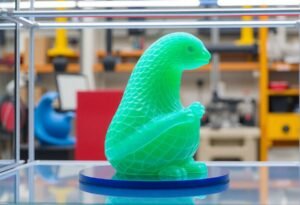The Internet of Things (IoT) is revolutionizing various sectors, especially in healthcare management systems. This innovation enhances the efficiency and effectiveness of care delivery, making it a pivotal area for healthcare professionals and technology developers alike.
Transforming Patient Monitoring with IoT
One of the most significant impacts of IoT in healthcare is in patient monitoring. Smarter devices like wearables and sensors collect real-time data, allowing healthcare providers to monitor patients more closely than ever before. For instance, vital signs such as heart rate and oxygen levels can be tracked continuously, providing alerts if anomalies arise. This proactive approach leads to quicker interventions and improved patient outcomes. Additionally, such devices can minimize hospital visits, enabling patients to maintain their health from the comfort of home.
Streamlining Data Management with Connected Devices
IoT enables seamless collection and integration of patient data across various platforms. Advanced healthcare management systems utilize cloud computing to maintain a unified record of patient information. This reduces the chances of errors associated with manual data entry and enables healthcare professionals to access historical data quickly, facilitating a holistic view of the patient’s health. The interconnected nature of IOT devices means that doctors can collaborate more effectively, utilizing comprehensive data for informed decision-making.
Improving Resource Allocation and Efficiency
With the use of IoT, healthcare facilities can optimize their resource allocation. Smart inventory management systems can track medical supplies and alert staff about low stock levels, ensuring that critical supplies are always available. This innovation not only reduces waste but also enhances operational efficiency. Furthermore, hospitals can analyze data on staff utilization and patient flow, helping to streamline processes to reduce wait times and improve patient satisfaction.
Enhancing Personalized Treatment Plans
The integration of IoT in healthcare allows for the development of more personalized treatment plans. By aggregating insights from various wearables and health monitoring tools, healthcare providers can tailor individualized care regimens that meet each patient’s specific needs. Such precision medicine, empowered by IoT technology, can significantly improve treatment efficacy and patient adherence to prescribed therapies. The outcome is better patient engagement and a more proactive approach to health management.
Facilitating Telemedicine and Remote Consultations
IoT has made telemedicine more effective. With the aid of connected devices, health professionals can monitor patients remotely and conduct consultations without the need for physical visits. This is particularly beneficial for individuals in rural areas or for those with mobility challenges. Remote patient monitoring enables doctors to provide timely advice, adjust treatment plans, and ensure that patients remain on the right track towards recovery, all while reducing the burden on healthcare infrastructures.
Addressing Security and Privacy Concerns
With the rise of IoT in healthcare comes increased attention to security and privacy. As devices collect sensitive health data, ensuring this information is protected is crucial. Healthcare organizations must implement robust cybersecurity measures to safeguard patient information from breaches. Compliance with regulations like HIPAA is essential, as is keeping patients informed about how their data will be used and stored. Prioritizing these concerns is vital for fostering trust in IoT-based healthcare systems.
Disclaimer: The information in this article is for educational purposes only and should not be considered medical advice.





















